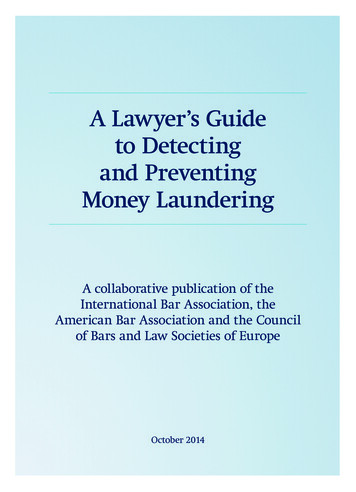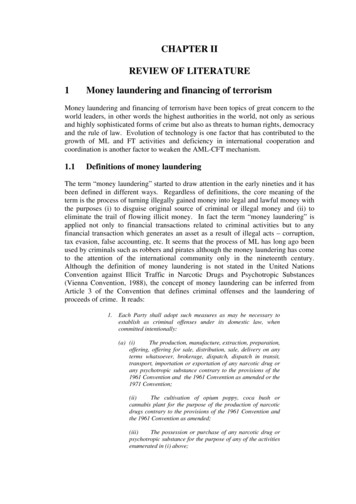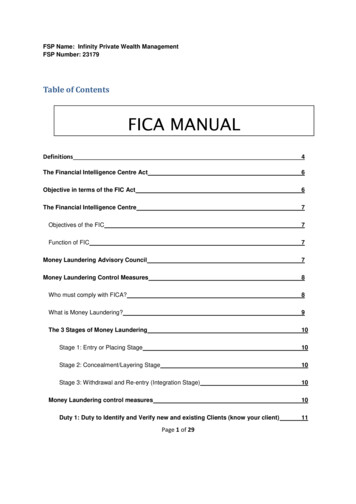
Transcription
The BestWomen’s Stage Monologuesof 2003
Smith and Kraus Books for ActorsMONOLOGUE AUDITION SERIESThe Best Men’s / Women’s Stage Monologues of 2002The Best Men’s / Women’s Stage Monologues of 2001The Best Men’s / Women’s Stage Monologues of 2000The Best Men’s / Women’s Stage Monologues of 1999The Best Men’s / Women’s Stage Monologues of 1998The Best Men’s / Women’s Stage Monologues of 1997The Best Men’s / Women’s Stage Monologues of 1996The Best Men’s / Women’s Stage Monologues of 1995The Best Men’s / Women’s Stage Monologues of 1994The Best Men’s / Women’s Stage Monologues of 1993The Best Men’s / Women’s Stage Monologues of 1992The Best Men’s / Women’s Stage Monologues of 1991The Best Men’s / Women’s Stage Monologues of 1990One Hundred Men’s / Women’s Stage Monologues from the 1980s2 Minutes and Under: Character Monologues for Actors Volumes I and IIMonologues from Contemporary Literature: Volume IMonologues from Classic Plays 468 BC to 1960 AD100 Great Monologues from the Renaissance Theatre100 Great Monologues from the Neo-Classical Theatre100 Great Monologues from the 19th Century Romantic and Realistic TheatresThe Ultimate Audition Series Volume I: 222 Monologues, 2 Minutes & UnderThe Ultimate Audition Series Volume II: 222 Monologues, 2 Minutes & Underfrom LiteratureYOUNG ACTOR MONOLOGUE SERIESCool Characters for Kids: 71 One-Minute MonologuesGreat Scenes and Monologues for Children, Volumes I and IIGreat Monologues for Young Actors, Volumes I and IIShort Scenes and Monologues for Middle School ActorsMulticultural Monologues for Young ActorsThe Ultimate Audition Series for Middle School Actors Vol.I: 111 One-MinuteMonologuesThe Ultimate Audition Series for Teens Vol. I: 111 One-Minute MonologuesThe Ultimate Audition Series for Teens Vol.II: 111 One-Minute MonologuesThe Ultimate Audition Series for Teens Vol.III: 111 One-Minute MonologuesThe Ultimate Audition Series for Teens Vol.IV: 111 One-Minute MonologuesThe Ultimate Audition Series for Teens Vol.V: 111 One-Minute Monologuesfrom ShakespeareWild and Wacky Characters for Kids: 60 One-Minute MonologuesIf you require prepublication information about upcoming Smith and Kraus books,you may receive our semiannual catalogue, free of charge, by sending your nameand address to Smith and Kraus Catalogue, PO Box 127, Lyme, NH 03768. Orcall us at (800) 895-4331; fax (603) 643-6431.
The BestWomen’s Stage Monologuesof 2003edited by D. L. LepidusMONOLOGUE AUDITION SERIESA SMITH AND KRAUS BOOK
Published by Smith and Kraus, Inc.177 Lyme Road, Hanover, NH 03755www.SmithKraus.com 2004 by Smith and Kraus, Inc.All rights reservedManufactured in the United States of AmericaFirst Edition: April 200410 9 8 7 6 5 4 3 2 1CAUTION: Professionals and amateurs are hereby warned that the plays represented in this book are subject to a royalty. They are fully protected under thecopyright laws of the United States of America, and of all countries covered bythe International Copyright Union (including the Dominion of Canada and the restof the British Commonwealth), and of all countries covered by the Pan-AmericanCopyright Convention and the Universal Copyright Convention, and of all countries with which the United States has reciprocal copyright relations. All rights,including professional, amateur, motion picture, recitation, lecturing, public reading, radio broadcasting, television, video or sound taping, all other forms of mechanical or electronic reproductions such as information storage and retrievalsystems and photocopying, and the rights of translation into foreign languages,are strictly reserved. Pages 101–104 constitute an extension of this copyright page.Cover illustration by Lisa GoldfingerCover design by Julia Hill GignouxThe Monologue Audition SeriesISSN 1067-134XISBN 1-57525-333-XNOTE: These monologues are intended to be used for audition and classstudy; permission is not required to use the material for those purposes. However, if there is a paid performance of any of the monologues included inthis book, please refer to the Permissions Acknowledgment pages 101–104to locate the source that can grant permission for public performance.
ContentsFOREWORD . . . . . . . . . . . . . . . . . . . . . . . . . . . . . . . . . . . . . . . . . . . viiTHE ANASTASIA TRIALS IN THE COURT OF WOMEN (2),Carolyn Gage . . . . . . . . . . . . . . . . . . . . . . . . . . . . . . . . . . . . . . . 1ASTRONAUT, M. Kilburg Reedy . . . . . . . . . . . . . . . . . . . . . . . . . . . . . 5AUTOBIOGRAPHY OF A HOMEGIRL, Yvette Heyliger . . . . . . . . . . . . . . 7THE BEAUTY INSIDE, Catherine Filloux . . . . . . . . . . . . . . . . . . . . . . 10BLACK THANG (2), Ato Essandoh . . . . . . . . . . . . . . . . . . . . . . . . . . 11BLUE (2), Charles Randolph-Wright . . . . . . . . . . . . . . . . . . . . . . . . 15BOILING PEOPLE IN MY COFFEE, Jonathan Yukich. . . . . . . . . . . . . . 19THE BRIDEGROOM OF BLOWING ROCK, Catherine Trieschmann . . . 21CABO SAN LUCAS (2), Lisa Soland . . . . . . . . . . . . . . . . . . . . . . . . . . 23CHAIN MAIL, Frederick Stroppel . . . . . . . . . . . . . . . . . . . . . . . . . . . 26CHRONICLES, Don Nigro. . . . . . . . . . . . . . . . . . . . . . . . . . . . . . . . . 27THE CIRCUS ANIMALS’ DESERTION, Don Nigro. . . . . . . . . . . . . . . . 29COELACANTH (2), Frederick Stroppel. . . . . . . . . . . . . . . . . . . . . . . . 31CONCERTINA’S RAINBOW (2), Glyn O’Malley . . . . . . . . . . . . . . . . . 35DOPPELGANGER, Jo J. Adamson. . . . . . . . . . . . . . . . . . . . . . . . . . . . 38ETTA JENKS, Marlane Gomard Meyer . . . . . . . . . . . . . . . . . . . . . . . 40FAIRY TALE ROMANCE, M. Kilburg Reedy . . . . . . . . . . . . . . . . . . . . 41THE FOURTH SISTER, Janusz Glowacki . . . . . . . . . . . . . . . . . . . . . . 43GALAXY VIDEO, Marc Morales . . . . . . . . . . . . . . . . . . . . . . . . . . . . . 44GHOST DANCE, Mark Stein and Frank Condon . . . . . . . . . . . . . . . 45HIGHWAY ULYSSES, Rinde Eckert . . . . . . . . . . . . . . . . . . . . . . . . . . . 47IN THE WRECKAGE, Matthew Wilson . . . . . . . . . . . . . . . . . . . . . . . 48LAESTRYGONIANS (2), Don Nigro . . . . . . . . . . . . . . . . . . . . . . . . . . 50THE LUCKY BELIEVE, David Cirone. . . . . . . . . . . . . . . . . . . . . . . . . 54THE MAYOR’S LIMO, Mark Nassar . . . . . . . . . . . . . . . . . . . . . . . . . . 55NEW YORK WATER, Sam Bobrick . . . . . . . . . . . . . . . . . . . . . . . . . . 57
THE NINA VARIATIONS, Steven Dietz. . . . . . . . . . . . . . . . . . . . . . . . 58NO NIGGERS, NO JEWS, NO DOGS, John Henry Redwood . . . . . . . 59OMNIUM GATHERUM, Theresa Rebeck andAlexandra Gersten-Vassilaros . . . . . . . . . . . . . . . . . . . . . . . . . . 61ORANGE LEMON EGG CANARY (2), Rinne Groff . . . . . . . . . . . . . . . 62OUT TO LUNCH, Joseph Langham . . . . . . . . . . . . . . . . . . . . . . . . . . 64THE PAVILION (2), Craig Wright . . . . . . . . . . . . . . . . . . . . . . . . . . . 66PLAYING HOUSE, Brooke Berman . . . . . . . . . . . . . . . . . . . . . . . . . . 69ROCKET MAN (2), Steven Dietz. . . . . . . . . . . . . . . . . . . . . . . . . . . . 70SALLY’S GONE, SHE LEFT HER NAME (2), Russell Davis . . . . . . . . . 73SECOND LADY, M. Kilburg Reedy . . . . . . . . . . . . . . . . . . . . . . . . . . 77SHOOT, David Cirone . . . . . . . . . . . . . . . . . . . . . . . . . . . . . . . . . . . 79SMASHING (2), Brooke Berman . . . . . . . . . . . . . . . . . . . . . . . . . . . . 80STRING FEVER (2), Jacquelyn Reingold . . . . . . . . . . . . . . . . . . . . . . 83TILL WE MEET AGAIN, Colin and Mary Crowther . . . . . . . . . . . . . 85TRISTAN (2), Don Nigro . . . . . . . . . . . . . . . . . . . . . . . . . . . . . . . . . 86WAITING (2), Lisa Soland . . . . . . . . . . . . . . . . . . . . . . . . . . . . . . . . 90YOU COULD DIE LAUGHING (2), Billy St. John . . . . . . . . . . . . . . . . 93A YOUNG HOUSEWIFE, Judy GeBauer . . . . . . . . . . . . . . . . . . . . . . . 97RIGHTS AND PERMISSIONS . . . . . . . . . . . . . . . . . . . . . . . . . . . . . . . 101
ForewordWhen Smith and Kraus first asked me to take over their exemplary monologue and scene book series, little did I know what I was getting in for.I have sifted through hundreds of plays in search of wonderful monologues for actors to use in class or for auditions and then managed, byhook or by crook, to get the rights to print them in this book. Here youwill find a wide variety of excellent monologues, for a wide range of performers — though the majority of the pieces I have chosen are for actors under forty as I believe these are the actors with the most pressingneed for new monologue material.Here are fantastic pieces by well-known playwrights such as DonNigro, Steven Dietz, and Janusz Glowacki, as well as just-as-fantasticmonologues by exciting new voices such as Rinne Groff, Brooke Berman,Lisa Soland and Yvette Heyliger.If you’re an actor, or acting student, who prefers to work on material from published, readily available plays, I venture to say that you won’tfind a monologue book more useful to you than this one. Also recommended: the 2001 and 2002 books, which I also edited.Thanks to Marisa Smith, Eric Kraus, Julia Gignoux, intern ErinMeanley, and all the agents, publishers and playwrights who allowed meto reprint these wonderful new monologues.So, actors: You’re going out big-game hunting, eh? Well, here are somefine arrows for your quiver. Don’t forget to mention Smith and Krauswhen you’re accepting your Oscar or Tony Award!— D. L. Lepidusvii
The Anastasia Trials inthe Court of WomenCarolyn GageDramaticMarie/Clara Peuthert (thirties to forties)A group of women are staging a trial involving the story of the GrandDuchess Anastasia. Five women are put on trial for their failure torecognize Anastasia after she escaped the massacre of her family.Marie, the bailiff, here is playing a witness.MARIA/CLARA PEUTHERT:Look, I don’t run a hotel. The Grand Duchesswasn’t paying any rent — and she wasn’t doing any of the work, either. Picture it: Here she is, the richest Goddamn woman in Europe,with ten million rubles rotting in some Goddamn account in theBank of England, and all she has to do is get the right people to sayshe’s Anastasia. But does she cooperate? Who’s out pounding the pavement? Clara Peuthert! Who’s out talking them into imperial mucka-mucks? Clara Peuthert! And if you think it’s easy for a woman wholooks like me to walk up to some grand duke and convince him I’mbest friends with the Tsar of Russia’s daughter, who I happened tomeet in the lunatic asylum — well, think again. But I did it. I gotthem to come see her. And you know what happened? You knowhow the Grand Duchess of Russia received her visitors? Like that!With a Goddamn blanket over her head! And you know what elseshe did? She wouldn’t speak any Russian. I’m trying to prove she’sthe Tsar of Russia’s daughter, and she won’t say a word of Russian.German, English, yeah. But Russian? — Nyet! And she knows howto speak it all right. You should hear her in her sleep. She talks allnight! So how hard can it be to just show a little courtesy, a littlesmile, a little “spasiba” when someone brings you a present? How hardis it to take a Goddamn blanket off your head and let them look at1
you? Is that so Goddamn much for me to ask when I’ve been slaving my whole Goddamn life away, working fourteen-hour days, killingmyself with work for Goddamn near forty years! Is that really so Goddamn much to ask? Hell, yeah, I threw her ass out. And I’d throwit out again!2
The Anastasia Trials inThe Court of WomenCarolyn GageDramaticJenny (twenties to thirties)A group of women are staging a trial pertaining to the strange story ofAnastasia Romanova. Here one of the women lays into the others.JENNY:Yeah, well, I came here tonight so sick I didn’t think I could perform, and none of you gave a Goddamn about that! You — (ToMarie.) with your politics (Marie sits.) or you — (To Lisa.) with yourprecious script, or you — (To Melissa.) with your critics, or you —(To Diane.) with your big ideas about changing the world! Nobodygave a damn about me, so long as I didn’t mess up your show. (ToAthena.) And then Athena here — my pal — she tricked me intogiving up the lead, so she could have it. But I’m still sick, and I stilllost a lead role and I probably won’t draw it again, and making allof you go sit in those chairs over there isn’t going to make me feelany better or give me back my chance to play the attorney. And if Itell you all that you’re fucked and inhuman and selfish — you knowwhat? I’m out of a theater company. And Diane is having a hard timefiguring out whether or not Anastasia isn’t going to get it anyway,so who gives a shit? If she’d figured out what the score was in 1922,she might have made a new life for herself, but it was people likeyou — people trying to work off their own guilt — who kept hertrying to be a Grand Duchess for fifty years, when there wasn’t evenany imperial Russia anymore. Don’t you get it? It’s gone. It’s over.The kingdom we had as little girls, that we thought was ours, is fucking gone. It’s gone. It went when the babysitter put his hand up ournightgown, it went when uncle made us suck his candy, it went whendaddy climbed on top of us. It’s gone. It’s fucking gone and it’s never3
coming back, and all the fucking courtrooms and trials in the worldaren’t going to bring it back. Never. It’s gone. It’s fucking gone. It’sgone. It’s gone. It’s gone! (She begins to choke with rage.) I don’t wantyour help! I want to be somebody other than a fucking victim before this whole thing’s over and it’s too late. (A long pause.)4
AstronautM. Kilburg ReedyDramaticCommander Michelle Griffith (late thirties to early forties)Commander Griffith, USAF, is addressing the press in a hall at theKennedy Space Center following a successful pioneering mission tothe moon.COMMANDER GRIFFITH:It’s hard to describe. You’ve seen pictures of themoon, but nothing prepares you for what it’s like. The word desertisn’t enough to describe it, there’s nothing like it on Earth. The onlycolor visible is our planet in space, impossibly far away, a swirl ofblue and white. The water planet.You feel so exposed. With no atmosphere, there is nothing toshelter you from the endless space. Nothing to interrupt your viewuntil your eyes reach the horizon and the planet seems to drop offabruptly into emptiness. (With a smile.) Not even a Texas prairiemesquite tree, and those damn things can thrive anyplace, on a little sunshine and a helluva lot of nerve. (Serious again.) Before I leftI spent a day out there with the Land Rover. I was collecting specimens from different rock formations and soil samples from all overthe northern hemisphere of the moon. Sealing them into sterile plastic bags. (Picking up bag of dirt.) The soil, it was dry. Like powder,ashes. Ancient volcanic rock, pulverized to dust by thousands of yearsof solar wind and micrometeorites. In some places the dust is thirtyfeet thick. No moisture, no life. (Recalling, with some surprise.) It mademe think of my mother. I wanted to smell the dirt in my hands, theway I’d seen her do. (Sets down the bag.) When I left, they were juststarting to build the first greenhouse. Soil analyses show that moondirt is tillable. In time, we hope that the lunar colony will be selfsupporting, actually capable of producing the food to feed its population. Can you believe that? (She picks up the bag of dirt again.) I5
brought a bag of it back with me. I wish . . . (Pausing in thought.)I wish I could take it to her and say, here, Mom. If anyone can doit, you can. Let’s see what you can grow with this. (Lights fade toblack.)6
Autobiography ofa HomegirlYvette HeyligerDramaticRoanetta (early thirties)Roanetta is an attractive, light-skinned, middle-class, AfricanAmerican woman, educated and well-bred, who struggles to recoupher self-esteem due to the challenges of living in American society.Set in 1983, this is a bittersweet play about Roanetta’s epiphany when,in a twenty-four-hour stretch, her child’s father shows up with hiswhite fiancée, and in an historic coup, the first black women iscrowned Miss America.SCENE: Therapist’s office, New York City. Roanetta grapples with theconsequences of the life she has chosen (as opposed to the way shewas raised) due to the choice she made to have a child and raise thatchild on her own terms.ROANETTA:Well . . . I needed to talk to someone. Someone who didn’tknow me — or all of the associated people involved. I’ve never beenin this position. I don’t even know anyone who has been in this position, at least no one who will admit it. You see, I don’t come fromthis. I grew up in a middle-class black family: baby grand piano, oriental carpets, Haitian art, two cars, and cocktail parties, who’s who,who ain’t who, and who wants to be who. I don’t come from this. Iwent to church. I learned that God was a white man, with a longwhite beard, peering over a cloud, watching me like a hawk! You canbelieve he got his fifty cents every Sunday, yes he did! You see I don’tcome from this.7
I went to a private school until the fourth grade. I learned Frenchthere from a little French poodle puppet named Fifi. I served toastand tea from strawberry teacups at tea parties for my playmates onrainy afternoons. I was a Girl Scout. (She raises her right hand, making the Girl Scout sign, as she repeats the “Girl Scout Promise.”) “Onmy honor, I will try: To do my duty to God and my country, to helpother people at all times, to obey the Girl Scout laws . . . A Girl Scoutis loyal . . . A Girl Scout is thrifty . . . A Girl Scout is clean in thought,word, and deed. And there are others — ten in all, I think. You seeI don’t come from this.I went to Charm School. You know — to learn how to sit, howto stand, how to walk, how to talk, how to eat, the social graces.Ladies don’t fart. Did you know that? I never farted. Not once. Honest! I did “poot,” however. But I don’t think that’s the same thing —is it? You see, I don’t come from this.I went to Barbra Streisand movies and to museums on the weekends, or to the ballet. I know every Johnny Mathis album by heart.I saw him in concert once! You know, if you close your eyes, youcan’t tell the difference between the record and the real thing! Hearing Johnny Mathis live was just like listening to a photograph! It waspicture perfect. You see I don’t come from this.I went to boarding school in upstate New York with daughtersof owners of big corporations, you know, “old money,” and daughters and granddaughters of politicians, girls who had never even beenaround a black person before. I was a debutante — wore a white dressto my cotillion. I danced the waltz, just like Cinderella — one . . .two . . . three, one . . . two . . . three. I went to college, spent thesummer abroad in France. “Bon jour, Mademoiselle!” “Bon jour,Monsieur!” You see, I don’t come from this, this WELFARE!I had no one to talk to, no frame of reference. No one in myfamily was ever on it. I had no frame of reference. Do you think Ilike being on welfare? Do you think it’s easy for me? Walking throughthose doors was the hardest thing I ever had to do. Me who writespoetry, who takes art classes, who listens to classical music, who readsthe “Arts and Leisure” section of the New York Times on Sundays,sipping a mimosa and eating a croissant. Me, the light-skinned,8
middle-class, bourgeois, spoiled, broken black woman standing onone leg, who wanted to breast-feed. But the hardest part was thefear — fear I would end up like those other welfare mothers, hanging out of windows waiting for the mailman to bring my check,going nowhere, life passing by, baby after baby, different fathers, nobooks, only TV sets. I mean that’s the stereotyped welfare mother,isn’t it? You see, I wasn’t going to let Craig talk me into throwing mybaby in the trash. But, I’m not going to give up my dreams either.I’m in graduate school! Welfare is not my career; it’s not my goal. I’mgoing to be a professional writer some day. I just need some help rightnow. That’s what welfare’s for, isn’t it? To help you get on your feet?I know what you think. You think I should go back home andlive with my parents — or be chained nine to five to a secretary’sdesk with my baby spending its days with someone who is not itsmother, no! I want to be there to see baby’s first steps, to hear baby’sfirst words, to feel baby’s little mouth sucking my milk from mybreasts. Is that wanting my cake and eating it too?9
The Beauty InsideBy Catherine FillouxDramaticLatife (late twenties)Latife, a city lawyer, decides to defend Yalova, a fourteen-year-oldgirl, the victim of an attempted honor killing in rural, SoutheasternTurkey.LATIFE:When I was a little girl my own mother died. She died in a carcrash — if you ever go to Istanbul you’ll see that traffic lights areonly there for decoration. They say my mother was the type to stopat them. So . . . I was raised by men. My father, two brothers taughtme how to excel, study hard, debate at the dinner table, defend myhonor. I went to the best university, was lauded by my teachers,lauded especially by my father and my brothers who always seemedgiddy that I, a woman, their creation, succeeded so well, worked outso right. (With self-deprecation.) Now I am a senior lawyer, but thereis no place to debate at the dinner table about people like you.Your fate is unthinkable to those who raised me. These menwould never understand how in your belly will be your life, yourself, how that woman who walked out the door is still your heroine;how the canal you traveled down is both your road to freedom andthe rope to hang you. That silvery mirage you speak of, just out ofreach . . . I will fight with what I have been given by those men whohonor me so highly. For them it’s all for common markets, but that’snot what it is for me. I will have to fight this their way, the way myown father taught me, for you, Yalova. Now let me go get the doctor.10
Black ThangAto EssandohComicKeisha (black, late twenties to early thirties)Keisha is recounting her experience with trying to rent a horse-drawncarriage for her wedding. She is talking to her friend and roommate,Mattie, who is white.Mattie and Keisha’s apartment. Keisha is stuffing invitations. Mattie’sdoing yoga.KEISHA: So I met the horses last night. Champ and Lucky Lady. You know,to pull my bridal carriage. So now is the time I find out that Omar’sgrandmother is deadly afraid of horses. Some childhood trauma shehad when she was like two when her pet rabbits got trampled to deathby a wild stallion. . . .Yeah, apparently it was pretty bad. Cause there were like 150baby rabbits in the litter and somehow they got into the stable andthe stallion was in heat so it just freaked out — and there were likebloody rabbit ears, and fluffy tails all over the place. And supposedly rabbits make the most awful screeching sound when they’redying. It’s supposed to sound like a child crying or something likethat. . . .Yeah. But you would think that after what, seventy-eight yearsshe would have gotten over something like that. Right? I mean comeon, she was raised on a farm. She eats fried chicken for Christ sakes.I mean what? Chickens don’t make horrible noises when they’re getting slaughtered? I bet they do. So they bring out Champ and LuckyLady, you know, the horses? And my grandmother-in-law-to-be totally freaks out. I mean freaks out. And it was really scary and kindasad because she’s autistic and just had a stroke, so only half of herface works, so it’s like a total Dustin Hoffman–Rainman kind of freakout. I mean she starts banging her head screaming “Bunny!” “Bunny!”11
“Bunny!” which totally freaks out Lucky Lady who proceeds to takethe biggest grossest shit I’ve ever seen right in front of us. I meanten pounds of shit just drops out of this horse’s ass. Just like that.And I’m like: “Is this normal?” And apparently it is? Horses shit without warning! Dogs squat, cats excuse themselves, but horses? Nowarning just “Sploosh!” Can you imagine if that were to happen during the ceremony? So to hell with the horses I’m renting a limo.12
Black ThangAto EssandohSeriocomicMattie (late twenties, early thirties)Mattie, a white woman, is talking to her friend and roommate Keisha(who is black), about a dream she had about the black man she isdating, whose name is Sam.Mattie and Keisha’ s apartment. Keisha is trying on her wedding dress.OK so there I am on the turnpike. Just me and Mr. Pugglewuckwho’s driving because it’s his turn to drive. And we’re driving, flipping through the radio stations. And all of a sudden “Relax” byFrankie Goes to Hollywood comes on! You know that song? (Singing.)“Relax! Don’t do it! When you wanna sock it to it! Relax! Don’t doit when you wanna come! Huh!” I love that song. So does Mr. Pugglewuck and it’s so funny because we had just been saying ten minutes earlier how cool it would be if we could hear that song. Andthere it was! I love when that happens. So anyway it’s me and Mr.Pugglewuck and we’re driving, and singing and blowing bubbles.Roasting marshmallows in the campfire we’ve got going in the glovecompartment. And we’re eating kumquats and Skittles and it’s funnybecause Mr. Pugglewuck who’s always been a little on the compulsive side, likes to color coordinate his Skittles before he eats them.So he’s got them lined up on the dashboard, you know red, orange,yellow, green, blue, indigo, violet and he’s eating them one by one.And that’s when I notice that the Skittles are lined up in the exactorder of the colors in the visible light spectrum. So I go: “Hey Mr.Pugglewuck! ROY G BIV! Get it?” Which I thought was pretty hysterical but apparently was completely lost on Mr. Pugglewuck causehe kinda just looked at me and blinked. Which, at the time, I thoughtthat was kinda rude. So I was about to say something when I noticed that instead of arms, Mr. Pugglewuck had fins . . . And that’sMATTIE:13
when things started to get a little weird, Mr. Pugglewuck was actually the Mr. Pugglewuck. The sea lion my mother bought me whenI was three when my parents and I went to Sea World one summer.Mr. Pugglewuck was my most favorite toy, who I lost on the beachwhen we went down to the Keys a few years later.And according to my parents I almost drowned trying to swimout to sea in order to find Mr. Pugglewuck who, apparently, I assumed had run away because he was homesick. I was in a coma forthree hours. I of course have no recollection of this. But that’s notthe point. The point is that what I hadn’t noticed until after I wokeup is that anytime Mr. Pugglewuck spoke . . . it was with Sam’svoice. . . .What do you think that means?14
BlueCharles Randolph-WrightSeriocomicPeggy (thirties to forties)Peggy, the matriarch of a black family, is warning her son Reubenabout a girl he is seeing.PEGGY:This one just smells of money. This is the kind of coat you weardown Fifth Avenue. It called out my name — “Peggy! Peggy!” Andbefore I knew it, my credit card had leapt out of my purse, and wasdancing down the counter. I tried to stop it, I really did, but chargecards have a mind of their own . . . And you should have seen thatnew salesgirl’s face. A Black Woman with an American Express cardfrom Kent, S.C. almost gave her a heart attack. She held up thecheaper coat and said, (Imitating her.) “Should I ring this red oneup?” And I said, “Should I wring your red neck?”Oh, yes I did. She picked the wrong person to mess with today!First, she choked on her gum, then laughed a little nervous laugh,then started fanning herself, complaining about how hot it was. Helpful hint — white people often complain about the heat when trying to stop that word nigger from jumping out of their mouths —honey, they complain about the heat . . . So I smiled and simplysaid, “I’ll take both.” I thought she was going to pass out right thenand there. Angel, let’s not tell your father about the coats. He doesn’tneed that information. We’ll simply apply my favorite new quote:“You must not lie, unless you must.” Isn’t that divine? Did yourbrother go with your father to get the body?He’s out with some tramp, isn’t he? I know he’s been seeing somebody, and he’s hiding her from me. Find out who she is.Oh, Reuben, don’t let these little lowlife Carolina tramps fool youlike they’ve fooled Sam. You see, we Clarks often prepare questionabletypes next door in the funeral home, that’s different. In business we15
don’t discriminate, but in life, we have a choice. Which means I never,ever want to see you bringing somebody common into this house.Lord have mercy, what kind of children would you have? Hair allnappy — (Looking at her watch.) Look at the time. I need to change,and pretend to cook. (Peggy starts to exit, then turns back to Reuben.)Baby, you must find out who this tramp is. Don’t protect yourbrother. Someone must de-tramp this family. When your mother asksyou to do something, you do it, you understand?16
BlueCharles Randolph-WrightDramaticPeggy (thirties to forties)Peggy, the matriarch of a black family, is talking to her son, Reuben,about his father, her husband, Samuel, an undertaker, and about afling she had years ago with a singer named Blue, who might beReuben’s real father.PEGGY:It was February 1966. We had a big snow that year. And muchlike you, I could not handle all these dead people one more second.Your father and I had been having problems. He couldn’t see me anymore. He could only see the families and the ministers and the pallbearers and the soloists and on and on and everybody but me. AndI couldn’t handle the pressure of being Mrs. Samuel Clark. So wedecided to separate for a while. But the Clarks don’t fail at anything,so it was a mandate that I told no one we were separating, and I wentback to Chicago. Everyone here was told that my mother was ill. Itried to get my life back, but I wasn’t the Fashion Fair model anylonger. I was a failed
find a monologue book more useful to you than this one. Also recom-mended: the 2001 and 2002 books, which I also edited. Thanks to Marisa Smith, Eric Kraus, Julia Gignoux, intern Erin Meanley, and all the agents, publishers and playwrights who allowed me to reprint these wonderful new monologues











